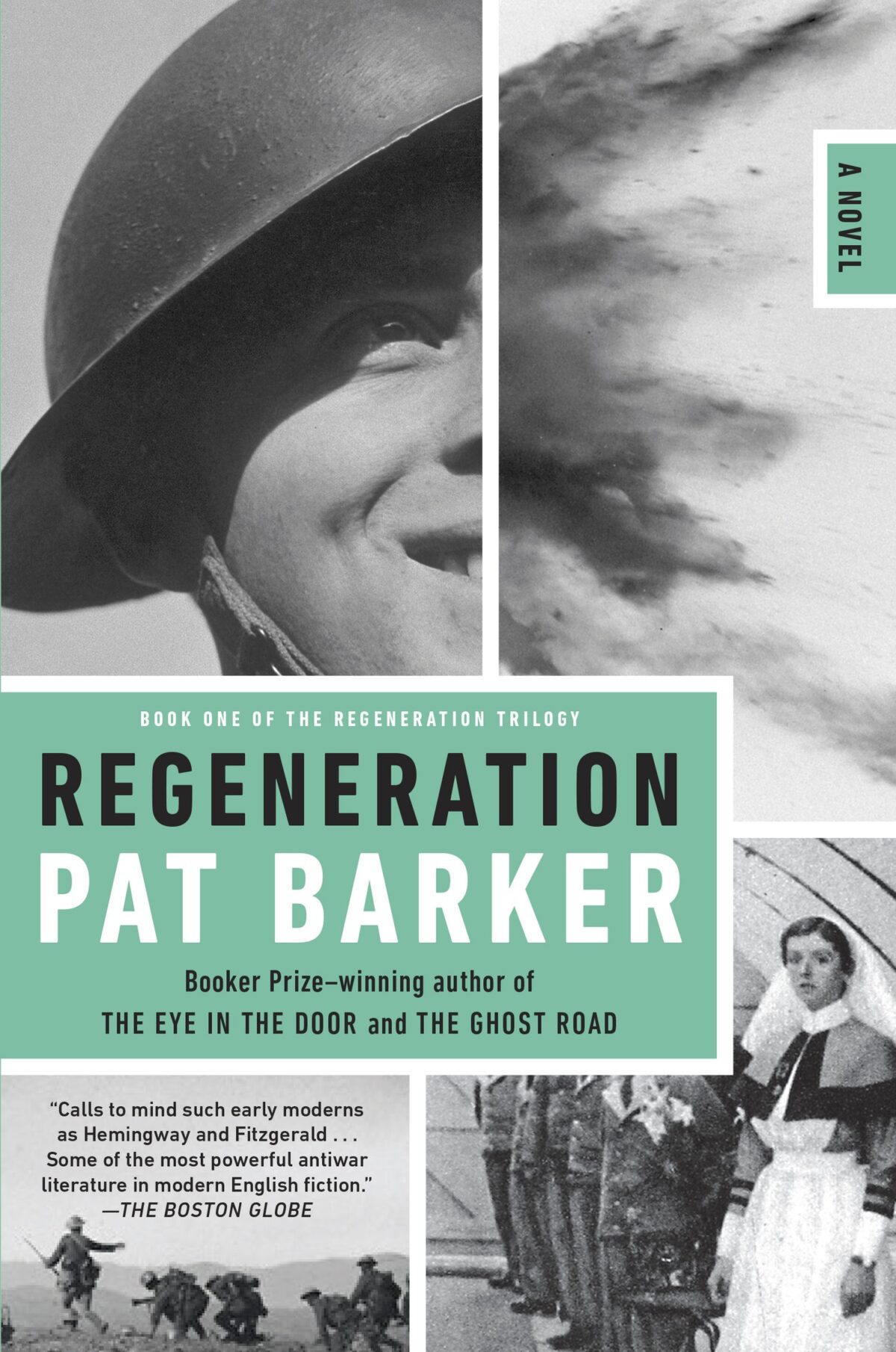Siegfried Sasoon was a British soldier in WWI. He was also a poet. He won a Military Cross for bravery in 1916. In 1917, he made a “Soldier’s Declaration” protesting against the continuation of war. He claimed that the war was being continued for political reasons and that he could not bear witness to what the soldiers were going through. Sasoon was declared unfit for service and sent to Craiglockhart Hospital near Edinburgh where he was treated for “shell shock”. His psychiatrist was W. H. R. Rivers, a well known anthropologist, neurologist and ethnologist. Pat Barker’s novel Regeneration starts with Sasoon arriving at the hospital to meet Rivers. Regeneration is the first part of a trilogy, followed by The Eye in the Door and The Ghost Road. Pat Barker won the Booker Prize for The Ghost Road in 1995.
War is not natural which is why the rules that we follow in everyday life do not apply in war. For instance, it is not only okay but necessary to kill people in a war. Rivers is at a hospital that treats wounded soldiers. At one end is the crazy battleground, at the other is the civilian life with rules and regulations. Rivers is caught between two completely different worlds and he has to communicate with both. The dilemma faced by Rivers is quite unique. He is treating patients who have lost their speech; patients who have regular nightmares or who do not respond to any stimuli. His goal is to help these patients to live a trauma-free life. But once he succeeds in doing that, they have to go back to the battlefield and fight again. He is making them better only so that they can get traumatized again or worse, get killed.
This reminded me of one of the greatest novels written in last century, Joseph Heller’s Catch-22. It has been underrated, mainly because it is funny and makes you laugh. And by laugh I mean not a smile or a smirk but a belly-aching guffaw. But beneath all that humour and satire, the fact staring at you in the face is that war does not make any sense.
In Regeneration, Pat Barker visits the war away from the battlefield, in the Craiglockhart Hospital. We experience the war through the experiences of these soldiers. In particular, Barker relies on the external parameters : light, sounds, smells and tastes to portray a breathtaking picture of the war front. One is reminded of the first 20 minutes of Steven Spielberg’s Saving Private Ryan. Interestingly, Spielberg story-boarded the sequence after talking to many WWII veterans who had fought at Normandy and incorporated the minute details that they were able to recall.
In this trilogy, Barker looks at different peoples who are at the periphery of the war but are deeply affected by it nonetheless. Some of these reactions can be rather surprising. Take Lizzy, for instance, whose husband is now at the war front. He is a regular wife beater so with him gone, she could not be happier about the war. She remarks, “on August 4, 1914.. peace broke out.” This signifies one of the major sociological implications of WWI. With most of the men gone to war, women who had hitherto been forced in secondary roles suddenly found themselves free of restrictions and in charge.
Sasoon faces his own dilemma. He is not a pacifist. He saved lives of many soldiers while fighting against the Germans in France and received the Military Cross for bravery. Now, he is disillusioned and his conscience forces him to protest. The authorities cannot court-martial a decorated soldier so they take the easy way out and send him to Craiglockhart. Rivers is under pressure to declare him mentally unfit but finds nothing wrong with Sasoon and refuses to do it. Sasoon is discharged and goes back to the war.
War is often glorified in literature and movies. It takes a Saving Private Ryan or a Fury to unveil the real face of war. Pat barker does not hold back in describing the brutality of war. The Regeneration Trilogy portrays the devastating effect it has on millions of lives, not just those on the battlefield but also those who are back home.


